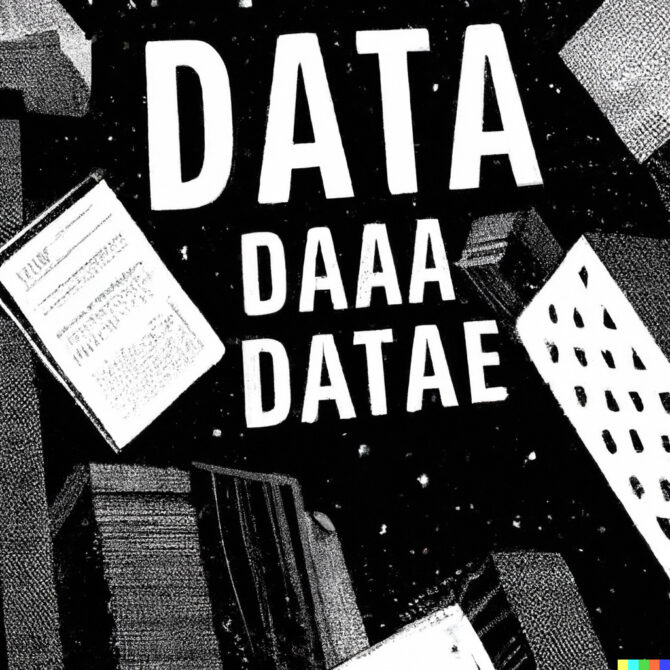An experimental collaboration between humans and artificial intelligence
Populism in pre-election political discourse in Greece

Populism is not equivalent to politicians’ falsehoods, promises, or deceitfulness. It is not synonymous with demagoguery, propaganda, or manipulation.
We at iMEdD are launching an experimental project with Datalab (Department of Informatics, Aristotle University of Thessaloniki) and doctoral candidate Antonis Galanopoulos to analyze the pre-election speeches of six Greek party leaders. The initiative uses human knowledge and ChatGPT from Open AI, a cutting-edge AI model, to conduct algorithmic analyses of topics, sentiment, polarization, and populism. The objectives are to provide a comprehensive analysis of the political discourse and to evaluate the capacity of large language models to analyze political speech.
A team of 16 specialists compiles all available pre-election political speeches by Kyriakos Mitsotakis, Alexis Tsipras, Nikos Androulakis, Dimitris Koutsoumpas, Kyriakos Velopoulos, and Yanis Varoufakis. Each speech is subjected to algorithmic analysis to identify topics, evaluate sentiment, and assess polarization and populism levels.
As the general elections in Greece approach, political discourse assumes center stage, molding public opinion and shaping the future of the nation. This project’s analysis will cast light on the current state of political discourse in Greece and spark discussions regarding its enhancement.
The phenomena of populism and polarization.
Instead of focusing on polarization as a phenomenon, we examine the language of polarization to determine whether political discourse exhibits patterns designed to foster a perception of polarization or create polarized conditions within the socio-political landscape.
Regarding populism, we adopt a popular approach to political theory that focuses on the presentation of ideas rather than their content. This method does not assign positive or negative values to populism as a communication style centered on “the people”. To identify populist language, we look for a clear distinction between “the people” and “elites” or privileged classes. This method allows us to identify and analyze populist discourse objectively and fairly.
The levels of polarization and populism in each speech
The slow death of open data in Greece

What led to the transition from innovative transparency to the “sealing off” of data during the pandemic?
Analyzing sentiment
The ChatGPT model has revolutionized text sentiment analysis: It has been trained and the algorithm has learned the language patterns and associations found in billions of texts. The program then identifies words, phrases, and expressions that convey feelings or opinions, such as positive, negative, or neutral emotions. The ChatGPT 3.5-turbo can determine the speaker’s intent by analyzing the overall tone of a text. We use this ability to analyze political speeches for the current project.
The emotional tone conveyed in each speech from every party leader
Topic analysis
This project relies heavily on topic detection, which enables a deeper comprehension of the dominant issues and themes in the political discourse preceding the Greek general elections. By systematically identifying and categorizing the primary topics discussed by political leaders, the project is able to accurately assess their priorities, policy proposals, and overall campaign messaging. This exhaustive view of the political landscape equips voters with pertinent and significant information, thereby promoting informed decision-making and contributing to a more robust democratic process. In addition, it permits the identification of potential areas of agreement or divergence between political parties, fostering constructive dialogue and possibly leading to an improvement in the quality of political discourse.
The AI model recognizes recurring themes and keywords in the political speeches and groups them accordingly. The first step in our analysis is to examine whether each paragraph of the speech is a programmatic position of the party or criticism of the opponents. By analyzing the frequency and co-occurrence of these keywords and phrases, we can determine the primary topics of conversation. This method enables us to detect and classify the topics present in political speeches in a systematic manner.
The topics each party leader addresses during their speech
The restrictions
AI has both benefits and drawbacks in terms of public discourse. On the one hand, AI models such as ChatGPT can rapidly process vast quantities of data, allowing for comprehensive analyses of speech patterns, topic detection, sentiment, and other linguistic characteristics. This analysis enables us to identify trends and issues that may have been overlooked by conventional analyses. Alternatively, AI models may unwittingly perpetuate biases in their training data, leading to distorted results and reinforcing existing prejudices.
Imagine a high school pupil assigned to analyze political speeches in order to comprehend how ChatGPT operates. They initially collect data by reading newspapers and observing political debates. Then, they apply their knowledge to the analysis of new speeches and the extraction of pertinent insights. ChatGPT is similarly trained on vast quantities of text data and learns patterns and word relationships. It can generate insightful analyses based on prior knowledge when presented with new text.
However, there are limitations to these AI systems. Since they learn from the data they are trained on, they may inherit any inherent biases in that data, which could result in inaccurate or unjust outcomes. For instance, if the AI model was trained on biased political opinions, its analysis could be slanted toward a particular viewpoint, defeating the purpose of an impartial evaluation.
The human factor
Artificial Intelligence is not the driving force in this endeavor, but rather an assistant. A team of eight journalists, a political scientist, a data visualization expert, three data scientists, and two IT specialists, examines every result of our analysis. Their dual objective is to refine the data and evaluate the limitations and advancements of these systems, which have already revolutionized natural language processing.
Before drawing any conclusions from the charts in our analysis, we kindly request that you review our methodology post to comprehend the choices made during the analysis and the limitations of the technology used. Additionally, we encourage you to read the two articles we have published on polarization and populism to gain a deeper understanding of our approach to this analysis.
Do you see an error in our visualizations? Don’t hesitate to get in touch with us at [email protected]
Idea & Project Coordination: Thanasis Troboukis, Kelly Kiki (iMEdD)
Journalistic Research/Analysis: Nota Vafea, Katerina Voutsina, Stefania Ibrishimova, Athina Thanasi, Kelly Kiki, Chrysoula Marinou, Thanasis Troboukis, Georgios Schinas (iMEdD)
IT Support: Christos Nomikos, Nikos Sarantos (iMEdD)
Scientific Advisor on Political Theory: Antonis Galanopoulos, PhD Candidate at the School of Political Sciences, Aristotle University of Thessaloniki
Software Development/ Data Analysis: Pavlos Sermpezis, Stelios Karamanidis, Dimitrios-Panteleimon Giakatos, Ilias Dimitriadis (Datalab, School of Informatics, Aristotle University)
Datalab Director (School of Informatics, Aristotle University): Professor Athena Vakali
Translation: Anatoli Stavroulopoulou

